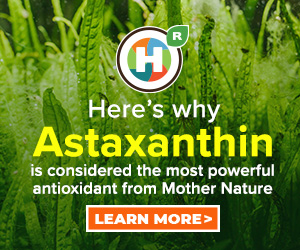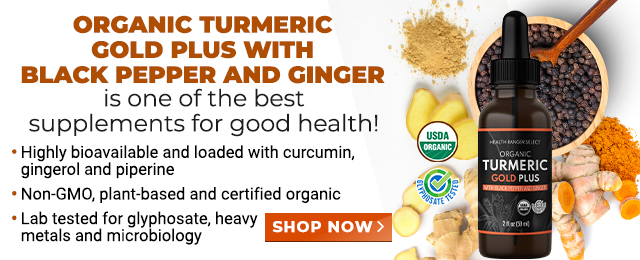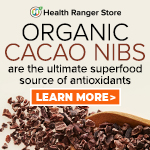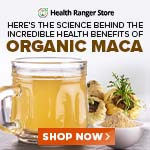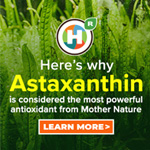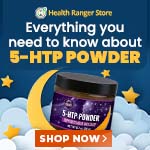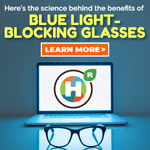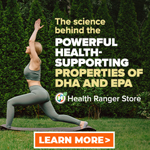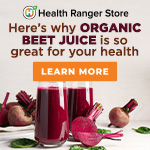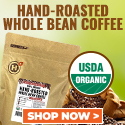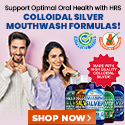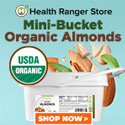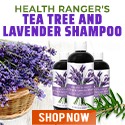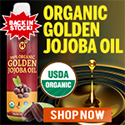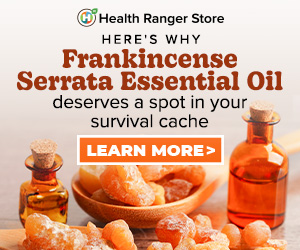
Einkorn - Historic hulls unlock healthier diet for all
Tuesday, May 03, 2011 by: Alex Malinsky aka RawGuru
Tags: Einkorn, wheat, health news
- China's COVID nightmare returns: Students isolated, deaths hidden as regime doubles down on totalitarian policies
- CDC wants plane travel LOCKDOWN for all humans who haven't received the toxic MEASLES PLANDEMIC VACCINE, even though vaccines don't work
- Forgotten food survival secrets: How ancient preservation techniques can save your family when modern systems fail
- Axis of Evil: CDC and FDA concealed COVID vaccine dangers as injuries soared, new study reveals
- China' rocket fuel DUMP over 7 U.S. states adds to chemical chaos from chemtrails that sicken citizens and fuel sick care industry
- New, weaponized fluoride study ignores BRAIN DAMAGE while pushing forced medication of water
- Unlocking nature’s arsenal: The definitive guide to dietary supplements in the fight against cancer
- Much anticipated “MAHA Report” is riddled with AI hallucinations and false citations: MULTIPLE VACCINE ISSUES sidelined in botched White House health initiative
- Massive Saharan dust plume the size of the U.S. barrels toward Florida, triggers health warnings
- Mount Etna erupts in fiery spectacle, forcing tourists to flee as ash plume reaches 4 miles high
- Silent invasion: Oral inflammation's role in systemic disease, from gum disease to heart health
- Trends forecaster Gerald Celente warns of global financial collapse and calls for cultural renaissance
- China-funded group behind New York's $75B climate law sparks national security alarms
- Daily vitamin D may add years to your healthspan by preserving DNA, research reveals
- “Healing Revolution” on BrightU: The silent epidemic fueling chronic illness and the suppression of natural healing
- The Trump-Palantir coup: How the company's stance on privacy for American citizens is under threat
- FDA and CDC to replace 80% of staff with AI agents to ‘Streamline’ operations - critics warn of depopulation agenda
- Boswellia serrata: An ancient resin with boundless medicinal properties
- BEWARE: USDA allows genetically engineered vaccines to infiltrate organic food production
- Globalists call for “celebration” of plunging human fertility as war against humanity accelerates
- Holistic eye care and ancient practices challenge surgery’s reign in cataract treatment
- Biden administration targeted mask and vaccine opponents as "terrorists," new docs reveal
- Key to aging gracefully, SUNLIGHT provides vitamin D, boosts nitric oxide, and preserves telomeres
- Amazing microscopy photos reveal how freezing crystals attempt to mimic electronic structures they are touching
- Unlocking methylene blue: A century-old compound steps into the cancer spotlight
- HEALTH SECRETS: How to Instantly Block MSG Toxicity Using Natural Substances (and the secret of Methylene Blue)
- LYME DISEASE on the RISE raising suspicion it's still part of U.S. military bioweapons program gaining traction for Lyme Disease PLANDEMIC
- MSG EXPOSED: Hidden Neurotoxins Found in Groceries, Snacks and Popular Fast Food Menus
- Morphic resonance “remote viewing” reveals iconic Middle East images of stealth bombers, a falcon and a one-horned ram
- Is Del Bigtree leaving MAHA? Bigtree blasts the MAHA report's shocking silence on vaccine failure and vaccine injury
- Vietnam moves to block Telegram messaging app over claims of “anti-state” content and illegal activity
- Breaking the aging code: How diet shapes longevity from breakfast onward
- WAR ON COGNITION: The Coordinated Assault on Your Brain and How to Defend Yourself Against Every Attack
- Study: Methylene blue and near-infrared light show promise in preventing brain degradation
- Sodium-ion battery BREAKTHROUGH offers a faster, safer, and more sustainable revolution in energy storage
- A closer look at the corporate influences steering the CDC and manipulating US health policy
- WAR ON COGNITION: The Coordinated Assault on Your Brain and How to Defend Yourself Against Every Attack
- Big Pharma's Dirty Secret: How Prescription Drugs Are Starving Your Body of Essential Nutrients
- RED ALERT: Nuclear War Between India and Pakistan Could Trigger Global Catastrophe… full RISK ANALYSIS
- Singapore's draconian vaccine mandate: Citizens face jail time for refusing FORCED medical procedures that do HARM
- MSG EXPOSED: Hidden Neurotoxins Found in Groceries, Snacks and Popular Fast Food Menus
- HEALTH SECRETS: How to Instantly Block MSG Toxicity Using Natural Substances (and the secret of Methylene Blue)
- Globalists call for “celebration” of plunging human fertility as war against humanity accelerates
- JESUS NEVER SPOKE ENGLISH: Historical facts on why the Bible you’re probably reading has been altered, redacted or hidden from much of its original meaning
- Landmark study of 85 million reveals shocking surge in heart attacks, strokes, and sudden death following the notorious COVID-19 jab
- BEWARE: USDA allows genetically engineered vaccines to infiltrate organic food production
- Silent catastrophe: COVID-19 vaccines linked to plummeting fertility rates, Czech data reveals
- Doctors are still puzzled about “long vax,” a set of symptoms linked to COVID-19 vaccines
- Why All Government Officials and Big Tech CEOs Who Engage in Systematic Viewpoint Censorship Must Be ARRESTED, Prosecuted, and Sentenced to Life in Prison
- WHO Pandemic Treaty sparks sovereignty concerns amid secretive voting and U.S. withdrawal
- Canada's COVID cover-up: Health officials swore secrecy to protect Trudeau from vaccine scandal
- Brushing with poison: Study finds toxic heavy metals in 90% of toothpaste brands, including those for children
- Head of L.A. Port warns of incoming plunge in U.S. supply chain, empty shelves and inventory depletion in 5-7 weeks
- Shocking study reveals cell phone radiation causes BLOOD CLUMPING in minutes
- Red Cross issues warning to stop blood plasma donations from vaccinated people
- Scientists confirm: GENIUS brain function can be spontaneously unleashed in humans without any apparent cause
- EPA advisor admits the agency is funneling billions to climate groups ahead of Trump’s return to White House
- HYSSOP: What research reveals about the health benefits of this ancient holy herb
- Two containers with completed ballots fall out of truck in Florida
- Newly released JFK files reveal Pentagon's role in creating Lyme disease and covid in the same lab
- Mike Adams releases country western hit single: Goin’ Back in Time is Comin’ Home
- Global leaders unite to clamp down on “misinformation” with UN-backed Cascais Declaration
- BREAKING: 2025 NDAA authorizes mandatory military draft of WOMEN across America… as Pentagon pursues global NUCLEAR war with both Russia and China at the same time
- I Want My Bailout Money – new song released by Mike Adams
- Michael Yon warns of a ZIONIST TAKEOVER in Trump’s second administration
- Ozempic and Wegovy weight loss drugs are injectable LIZARD VENOM PEPTIDES that may unleash a devastating wave of organ failure… side effects align with symptoms of SNAKE BITES
- BOMBSHELL: DNA testing kits are a SCAM to develop ethnic-specific bioweapons
- The Health Ranger releases “Vaccine Zombie” song and music video, using AI-animated zombies for the music video
- These 13 countries just signed an agreement to engineer a global FAMINE by destroying food supply
- Israeli soldiers accused of even more torture and abuse in the West Bank
- RFK Jr. clears key hurdle: Sen. Susan Collins backs controversial HHS nominee, signaling a new era for health policy
- Sermon 30: How Jesus reveals Caesar’s FAKE CURRENCY and FALSE AUTHORITY
Current day studies have shown that Einkorn may be a viable dietary option for patients suffering celiac disease; this is a hereditary chronic gastrointestinal condition whereby the intestines cannot digest the gliadin (i.e. the alcohol-soluble simple protein portion of wheat) causing an immune response which destroys the mucous membrane of the intestines. While Einkorn may be a more palatable and nutritious food for those celiac patients on a gluten-free diet, Einkorn crops do not grow wildly abundant. Increased production will be necessary in the near future to make Einkorn more widely available.
History states that heirloom Einkorn grains proved too difficult to use in the making of bread; contemporary society has found new ways to make not only bread, but also pancakes, pasta, and any other recipe which requires flour. In fact, some consumers prefer the whole grain pasta made from Einkorn versus the other types of wheat. Einkorn pastas do not possess a slimy consistency, mix extremely well with sauce flavors, and do not easily fall apart.
It is interesting to note that Einkorn breads significantly retained their high antioxidant values throughout the baking process, as compared to plain bread wheat and durum semolina wheat. Regarding Vitamin A, Einkorn touts thirty-five (35) times more of this nutritional constituent than its modern-day counterparts, thus improving eye and reproductive organ health, and preventing cancers. Lutein is four (4) times more abundant in Einkorn than its contemporaries, which helps to prevent macular degeneration and cataracts. Finally, riboflavin is up to five (5) times more concentrated in Einkorn than in modern wheat; riboflavin is used by the human body to synthesize energy and as an antioxidant to slow the aging process.
The above-mentioned antioxidants are not the only nutritional values Einkorn offers; the grain's carotenoid levels also proved to be better retained through the baking process. Einkorn provides up to four (4) times more beta-carotene than other wheat grains, which boosts immunity and assists in preventing cancer and heart disease. This, in itself, makes Einkorn an excellent food choice to improve contemporary diets. Einkorn offers high levels of protein for consumers as well.
As more and more people seek improved overall health through better nutrition, they find themselves traveling back to organic basics. Regarding Einkorn wheat, more and more consumers are traveling even further back in time to discover the heirloom organic secrets of Mother Earth.
Sources
http://en.wikipedia.org/wiki/Einkorn_wheat
http://www.einkorn.com/
http://www.spelt.com/origins.html
http://en.wikipedia.org/wiki/Fertile_Crescen...
About the author
Alex Malinsky aka RawGuru is an award winning chef and one of the leading experts in the field of raw food. He started to learn about raw foods at the early at of 15. After 10 years on the raw food diet he continues to be on the cutting edge of nutritional research and product development. Visit Alex's website at: www.RawGuru.com for more information.Einkorn at FETCH.news
Get independent news alerts on natural cures, food lab tests, cannabis medicine, science, robotics, drones, privacy and more.
Take Action: Support Natural News by linking to this article from your website
Permalink to this article:
Embed article link: (copy HTML code below):
Reprinting this article:
Non-commercial use OK, cite NaturalNews.com with clickable link.
Follow Natural News on Facebook, Twitter, Google Plus, and Pinterest
Science News & Studies
Medicine News and Information
Food News & Studies
Health News & Studies
Herbs News & Information
Pollution News & Studies
Cancer News & Studies
Climate News & Studies
Survival News & Information
Gear News & Information
News covering technology, stocks, hackers, and more



"Big Tech and mainstream media are constantly trying to silence the independent voices that dare to bring you the truth about toxic food ingredients, dangerous medications and the failed, fraudulent science of the profit-driven medical establishment.
Email is one of the best ways to make sure you stay informed, without the censorship of the tech giants (Google, Apple, Facebook, Twitter, YouTube, etc.). Stay informed and you'll even likely learn information that may help save your own life."
–The Health Ranger, Mike Adams










